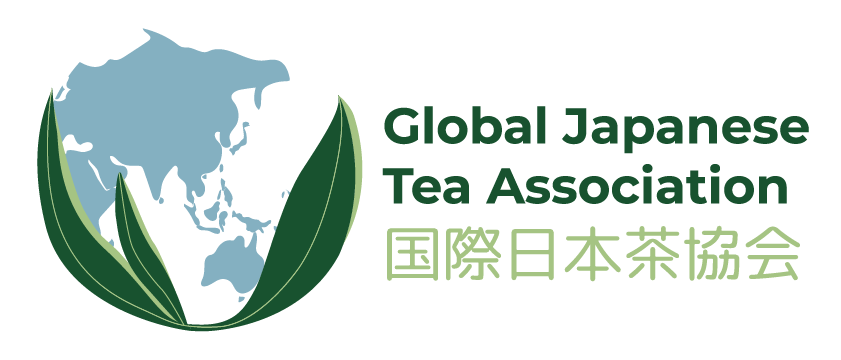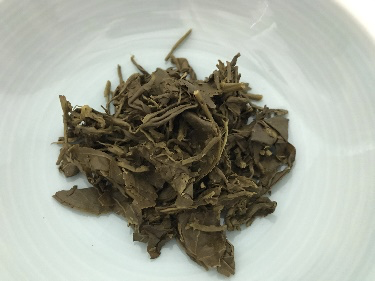The export of Japanese tea has been growing steadily over the last few years. Recently Kikugawa City has signed a partnership agreement with Sagawa Express to export local tea to Asia, Europe and North America. Tea products by Kikugawa tea farmers and traders will be introduced on the website operated by Alibaba group. Sagawa Express will be responsible for both listing the products and transporting them overseas.
Another trend that has gotten stronger recently is caffeine consciousness. With the focus on a healthy lifestyle during the pandemic, people started to be more conscious about caffeine consumption. As a result many Japanese companies producing bottled drinks started to offer caffeine-free or lower in caffeine versions of their tea and coffee drinks. As an example, last year Kirin released caffeine free tea – ‘namacha’.
Another soft drink giant Asahi has recently released its hot bottled drinks with new non-woven fabric labels. The labels have a rough texture and look like Japanese paper. They also help to keep the drink inside the bottle warm for longer. Asahi experimented with thermal labels in 2018, but it did not succeed. This is the second attempt with the label that is more distinguishable.
Inspired by the edible tea from Myanmar, Umegashima in Shizuoka Prefecture has developed Japanese edible tea. The tea, fermented with lactic acid bacteria, was created in collaboration with the Tokyo University of Agriculture. It is an attempt to broaden they ways tea is consumed in the country.
The research also continues on various ways to prepare tea. The collaboration between Kyoto Tea Research Institute and the coffee equipment manufacturer Ocean Rich resulted in a new tea dripper. It is an improved version of a coffee dripper, that rotates around and gradually pours water onto the tea leaves. The collaboration started about 10 years ago, and recently he dripper was finally introduced to the market.
In addition to that, Ujicha Academy, also run by the Kyoto Tea Research Institute, will be celebrating 10 years in 2024. The program next year will run between January and February and will include 4 sessions on various topics. The first session on 16th January will commemorate the academy’s anniversary.
Next year a series of tea ceremonies will be held in Nara in the name of Murata Juko. The Murata Juko ceremonies were started in 2014, but were paused during the pandemic. In February a total of 8 tea ceremonies by various tea schools will be held in Nara temples and shrines.
Wazuka Town in Kyoto has recently held a Wazuka Tea Party to give a chance to visitors to try local tea. 10 tea farmers from the town brought more than 20 different teas. For a 500yen ticket participants could try and buy as many teas as they liked.
Recently Wazuka town had another reason to celebrate. Its tea hand-rolling team won the first place in the national competition. It was the second time to for Wazuka team to win the competition (the first was in 2018) and the team hopes it will help to make Wazuka tea more well known in Japan.
The article is based on the Japanese media articles:
- One-Coin Comparison of 22 Kinds of Tea Leaves in Wazuka Town, Kyoto, December 3, 2023, Kyoto Shimbun 2023.11.28
- Coffee, tea…a wide variety of products: “caffeine management” spreading, Mainichi Shimbun 2023.12.01
- Dripper to solve the problem of “tea in a teapot,” a surprisingly difficult task, and the Institute’s thoughts pouring out, Asahi Shimbun 2023.12.01
- Please come to the Shukoh Tea Ceremony, Feb. 6-12, 2012, at 8 temples and shrines in Nara City, Mainichi Shimbun 2023.12.03
- Kikugawa City and Sagawa Express sign agreement to promote Kikugawa tea to the world through Chinese websites, Asahi Shimbun 2023.12.15
- Hand-mae tea “No.1” in Japan: Preservation Society of Wazuka Town, Kyoto Prefecture, wins back the title after five years of absence, Kyoto Shimbun 2023.12.17
- Asahi Soft Drinks, non-woven fabric labels keep warmth, persistence is its strength, Nikkei Shimbun 2023.12.25
- Eating Tea Leaves” from Umegashima, Shizuoka, Developed by Industry, Government, and Academia, Nikkei Shimbun 2023.12.26
- Academy” to be held at the Tea Research Institute and other facilities in January and February next year for young and ambitious people to learn the know-how of Uji tea, Mainichi Shimbun 2023.12.10
Image source: Kakurecha

